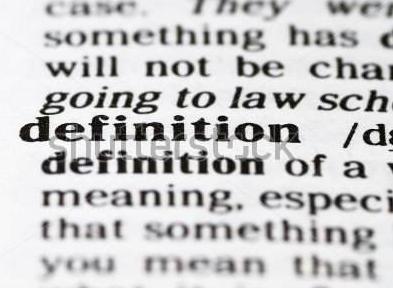 I decided to do some vocabulary research today after hearing the term rent-seeking several times over the past few months. I understood it in general terms based on the context, but it’s always good to confirm. I thought I would share the results of that research in this short post. Most of the definitions are from Wikipedia except profit seeking.
I decided to do some vocabulary research today after hearing the term rent-seeking several times over the past few months. I understood it in general terms based on the context, but it’s always good to confirm. I thought I would share the results of that research in this short post. Most of the definitions are from Wikipedia except profit seeking.
I knew what profit seeking was, but it is useful to define it to show the comparison to rent seeking. Profit seeking is when an individual or entity engages in an activity to create wealth that wasn’t there before. It is the nature of profit seeking that drives our free market system and incentivizes entrepreneurship, innovation, best practices, etc… Profit seeking creates products or services that people want.
Rent seeking is when an individual or entity expends resources in an attempt to gain a share, or a larger share of, existing wealth already created by someone else. Typically, rent seekers use the power of force, typically some Government agency force, to create a means in which they can gain in someone elses wealth. A classic example of this would be a medieval guild, or what we know today as licenses, where to practice a particular trade or profession you need to obtain, and pay for (the rent seeking part), the license. Lobby groups are another example, where money is spent to secure more of someone elses money than what was spent to secure it.
In the context I have used the term used, rent seeking increases as Government increases, as more and more regulations and agencies and Government expansions requires ever more paperwork, regulatory compliance, fees, licenses, inspections, permits, reviews, submissions, etc… and all the associated costs of that rent seeking that comes along with it. Rent seeking is part of public choice theory. So I looked that term up as well.
In a nutshell, public choice theory is, “the use of economic tools to deal with traditional problems of political science.” My interpretation of this based on the additional definitions provided, is that public choice theory is a means to study how people behave in their political affiliations, thought processes, etc… based on how any typical human would respond, economically (incentives, moral hazards, disincentives), in regards to any particular political issue, process, activity, idea, etc… This led me to the term rational ignorance.
Rational ignorance occurs when the cost of educating oneself on an issue exceeds the potential benefit that the knowledge would provide. This has consequences for the quality of decisions made by large numbers of people, such as general elections, where the probability of one vote changing the outcome is very small. One of the basic claims that results from public choice theory is that good government policies in a democracy are an underprovided public good because of the rational ignorance of the voters. Each voter is faced with a tiny probability that his vote will change the result of the elections, while gathering the relevant information necessary for a well-informed voting decision requires substantial time and effort. Therefore, the rational decision for each voter is to be generally ignorant of politics and perhaps even abstain from voting. Rational ignorance theorists claim that this explains the gross ignorance of most citizens in modern democracies as well as low voter turnout.
That helps explain a lot about the United States. My knowledge of politics, history, monetary and fiscal policy has gone up 1000% since the time I was “educated” in public schools, but it has taken significant effort on my part to self-educate. I am horrified to know now, what I did not know then, and by then I mean pre-2005. To think that most Americans are as economically, historically and politically illiterate as I was nine years ago, and they vote, is terrifying.
It also helps me understand why The Founders supported voting rights only for those who had something to lose. Typically, voting was limited to land owners, businessmen, etc… because their property, and their businesses and their livelihoods depended on keeping Government power to a minimum. It was also limited to men, not women. I know some women will be upset by this, but at that time in America, women (for better or worse in your opinion) were limited to cooking, cleaning and being the caretakers of the children. They were not invested in businesses or impacted directly by Government mandates, regulations, rules and taxes, only indirectly insomuch as Government impacted their husband’s businesses or property. The Founders knew that if people with nothing to lose were allowed to vote, they would simply vote themselves the gains taken from those who had worked to gain something, and now had it to lose.
And that is exactly what has happened.
Categories: Personal Economics, Personal Message, Random Thoughts
Leave a comment